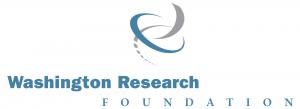Washington Research Foundation Postdoctoral Fellowship application now open
10 Fellows will be selected to carry out three-year STEM projects at eligible Washington state research institutions
WRF Postdoctoral Fellows2 are selected by an external committee to conduct original research projects addressing unmet public needs in STEM (science, technology, engineering and math) fields, with preference given to those in the life sciences. The new Fellows will receive salary, benefits and research expenses of up to $277,500 over three years, beginning in 2022.
The goal of the program, says Meher Antia, Ph.D., WRF's director of grant programs, is to enable postdoctoral researchers to conduct innovative research that could have a significant real-world impact.
"We're excited to support our fifth cohort of creative researchers at this pivotal stage in their careers. We want our postdoctoral researchers to have the freedom to pursue avenues of research that will help to establish themselves as independent scientists whose work will make a difference," said Antia.
David Galas, Ph.D., has chaired the selection committee3 since the program's inaugural recruitment in 2017. He is a WRF director and senior investigator at Pacific Northwest Research Institute, internationally recognized as an expert in molecular biology and genetics.
"Applicants should be clear and bold in their proposals. We have to understand the need that they are addressing, and the milestones that three years of funding could enable them to hit. Washington has outstanding research in all STEM areas, so candidates should carefully consider which institution and lab will provide the best support for their proposals," said Galas. "This is an opportunity for postdocs to take a deep dive into areas of important scientific and public interest."
Rossana Colón-Thillet, Ph.D., is a member of the 2020 cohort carrying out her fellowship in the Fred Hutchinson Cancer Research Center lab of Keith Jerome, MD, Ph.D. Colón-Thillet is investigating a potential cure for hepatitis B virus (HBV), the cause of fatal diseases including cirrhosis and cancer of the liver, and carried by more than 250 million people globally. Although vaccines for HBV have been used in the United States since the 1980s, there is no cure for patients already infected.
“The WRF fellowship gave me the security to dive into an exciting and risky new area of research in the Jerome lab. As a WRF Fellow, I have been able to meet and connect with a vast network of scientists working on diverse areas of research in Washington state—a unique characteristic of every WRF cohort. Throughout 2020, a difficult year for all of us, WRF has been there to provide support and facilitate the career development of their postdocs,” said Colón-Thillet.
The deadline for applications is June 27, 2021, with information sessions being held on May 14 and June 8.
About Washington Research Foundation:
Washington Research Foundation (WRF) supports research and scholarship in Washington state, with a focus on life sciences and enabling technologies.
WRF was founded in 1981 to assist universities and other nonprofit research institutions in Washington with the commercialization and licensing of their technologies. WRF is one of the foremost technology transfer and grant-making organizations in the nation, having earned more than $445 million in licensing revenue for the University of Washington and providing over $113 million in grants to the state's research institutions to date.
For additional information, please visit www.wrfseattle.org.
Dale Wadman
Communications Manager
+1 206-336-5600
dale@wrfseattle.org
Visit us on social media:
Twitter
LinkedIn
1 https://www.wrfseattle.org/grants/wrf-postdoctoral-fellowships/
2 https://www.wrfseattle.org/grants/fellows/
3 https://www.wrfseattle.org/selection-committee-and-eligible-institutions/

